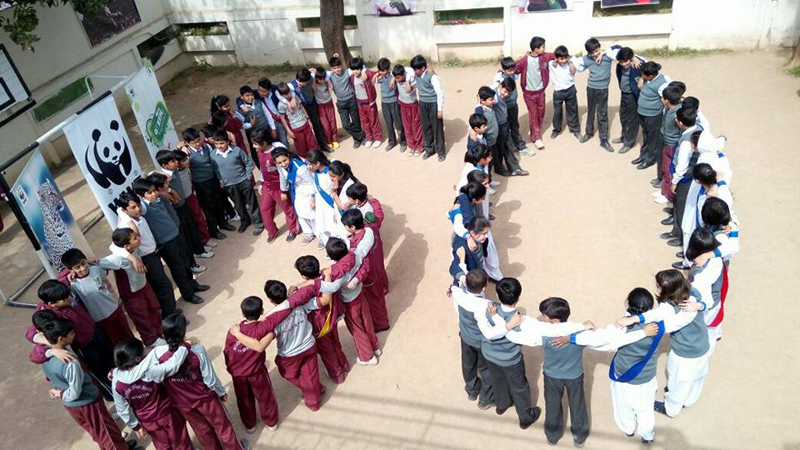 KARACHI: Like other parts of the world, Pakistan observed Earth Hour on Saturday from 8:30pm to 9:30pm, dimming or turning off the lights in bid to call attention towards climate change and the measures needed globally to fight global warming and protect biodiversity and nature.
KARACHI: Like other parts of the world, Pakistan observed Earth Hour on Saturday from 8:30pm to 9:30pm, dimming or turning off the lights in bid to call attention towards climate change and the measures needed globally to fight global warming and protect biodiversity and nature.
Lights were turned off for an hour in a number of state and provincial buildings in the city, including Frere Hall and Sindh Assembly.
Along with support from other provincial assemblies, the Sindh Assembly had also pledged its support for Earth Hour and to take initiatives to address the issues of climate change and biodiversity loss. A notification on the ban of plastic bags was issued only a few days earlier by the Sindh Home Department.
As part of Earth Hour, people, cities and businesses around the world switched off their lights for one hour to draw attention to the urgent need to step up the fight against climate change and protection of biodiversity. With the historic Paris Agreement on climate change now in full force, there’s never been a more crucial time to hold leaders accountable and show strong public support for efforts to stem climate change.
According to WWF-Pakistan, from the Eiffel Tower to Taipei 101 and the Empire State Building to the Acropolis, thousands of landmarks switched off their lights in solidarity as individuals, communities and organisations worldwide delivered on their potential to help change climate change, the planet’s biggest environmental challenge yet.
In Pakistan landmarks which switched off lights included Balochistan Assembly, Balochistan High Court, Lahore DCO Office, two major five star hotels, WAPDA House, WASA, LESCO, Fatima Group, Wazir Khan Mosque, Hazori Bagh, Trail Dehli Gate, PHA, MCB House, LDA Complex, Parliament House, Supreme Court of Pakistan, Pakistan National Monument, Pak-China Friendship Centre, Shah Faisal Mosque, Convention Centre, D-Chowk, 7th and 8th Avenues, said WWF-Pakistan’s statement.
In his message, Dr Babar Khan, WWF-Pakistan Sindh and Balochistan regional director, said that the country had embraced the true essence of the Earth Hour movement in 2018. “We have come a long way since 2010 when WWF-Pakistan first celebrated Earth Hour. The seed we sowed has taken root and the masses today are comparatively well-aware of the climatic changes around us. If we take a look into our past we would understand that movements have shaped our lives-movements matter- and the Earth Hour movement will shape our future. It is a constant reminder that we should lead towards the transformation of a more prosperous and renewable future.”
The year 2018 marks the eleventh anniversary of Earth Hour, which started as a symbolic event in Sydney in 2007. Today, it is the world’s largest grassroots movement for the environment, ensuring that people who are on the front lines of climate change, are also empowered to be the planet’s first line of defence. The one-hour event continues to remain the key driver of the movement encouraging individuals, communities, households and businesses to turn off non-essential lights as a symbol for their commitment to the planet.
In other parts of the country, events were organised in Lahore, Islamabad, Quetta, Bahawalpur, Khanewal, Faisalabad, Peshawar, Nathiagali, Gilgit, and Sukkur.
Published in Daily Times, March 25th 2018.